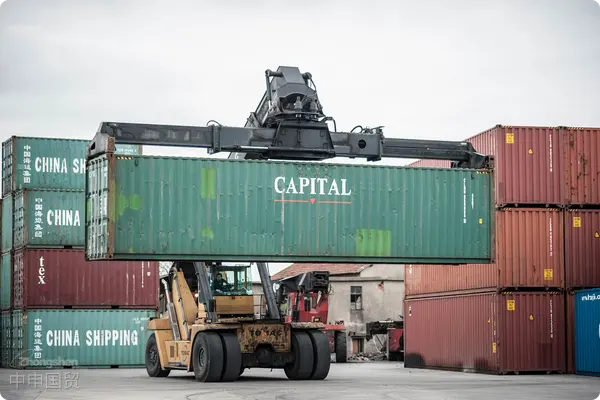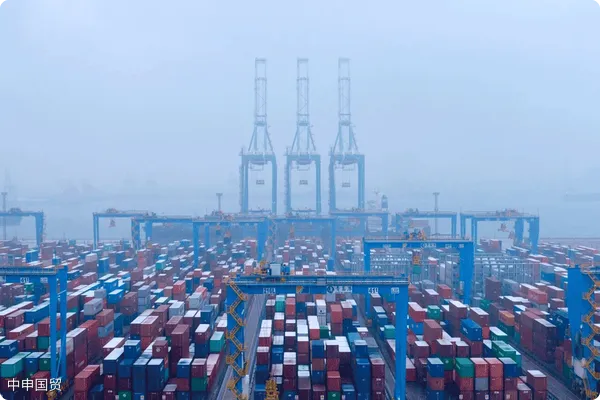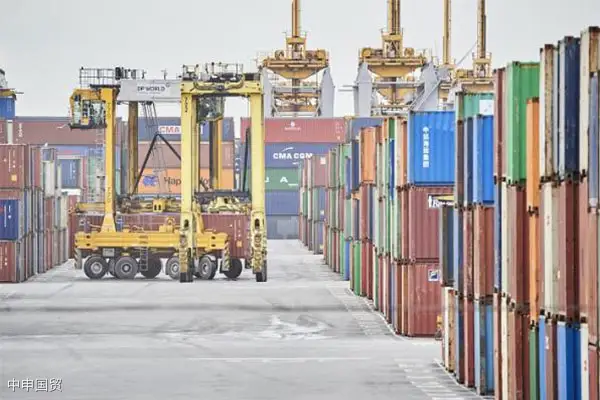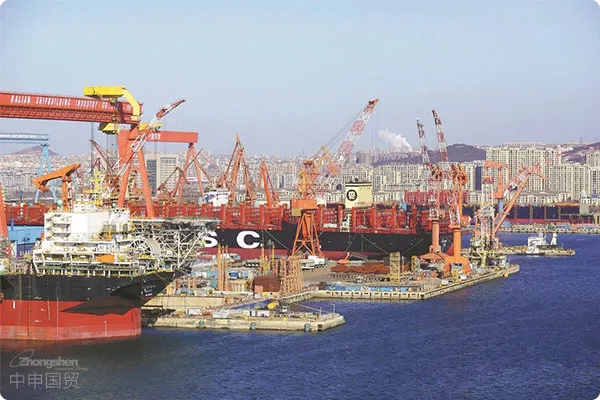- Shanghai Zhongshen International Trade Co., Ltd. - Two decades of trade agency expertise.
- Service Hotline: 139 1787 2118

Importing household textiles from Germany: From market to practice
On the grand chessboard of global trade, the German imported home textile market holds numerous opportunities but also comes with challenges. For importers in this field, professionalforeign tradeagency services are crucial, andZhongShen International Tradein this regard, we possess extensive experience and unique advantages.
International Trade Situation: Challenges and Opportunities Coexist
The current international trade situation is complex and volatile. On one hand, trade protectionism is on the rise, with frequent tariff adjustments, such as the U.S. imposing additional tariffs on certain textiles. Although not directly targeting home textiles imported from Germany to China, the global trade market is interconnected, potentially affecting upstream and downstream supply chains and causing raw material price fluctuations. On the other hand, the advancement of regional trade agreements brings new opportunities. For example, the Regional Comprehensive Economic Partnership Agreement (RCEP) has facilitated trade liberalization in the Asia-Pacific region. While Germany is not an RCEP member, it positively impacts the overall textile trade landscape.
From a market demand perspective, as consumers expectations for quality of life increase, high-end German home textiles are highly favored in the Chinese market, creating vast opportunities for import businesses. However, differences in regulations and policies across countries and regions, such as environmental standards and product labeling requirements, pose compliance challenges for importers.
Document Processing: The Cornerstone of Foreign Trade Imports
In the process of importing German home textiles, document processing is a critical step. With our professional expertise, we ensure all documents are accurate. First is the commercial invoice, which details product descriptions, quantities, values, and other information, serving as the basis for customs taxation. We assist importers in accurately completing it to avoid delays or fines due to data errors.
The bill of lading is equally important as it serves as proof of ownership of the goods. Depending on the mode of transport,Maritime TransportationBill of lading,Air Transportationdifferent types of bills of lading have distinct characteristics. We select the appropriate type based on the situation and ensure the information matches other documents. Attention to details like endorsements is also crucial to guarantee smooth delivery.
The packing list describes the packaging of the goods, including the number of boxes and the contents of each. An accurate packing list facilitates customs inspections and recipient verification. We meticulously check every detail to ensure all documents align with German export and Chinese import regulations.
When handling these documents, we strictly adhere to the International Commercial Terms (Incoterms). For example, under CIF (Cost, Insurance, and Freight), we ensure goods are loaded onto the vessel bound for the destination port by the specified date, arrange freight insurance, and provide the corresponding insurance documents.
For transporting underwear from Italy to China, sea freight is a common choice. First, select a suitable shipping company and schedule based on cargo volume and delivery timeline. Different shipping companies vary in route coverage, schedule reliability, and service quality. For example, large shipping companies like Maersk and MSC offer extensive route coverage and relatively stable schedules but may charge higher rates. Smaller shipping companies may offer competitive pricing, but their service quality and schedule reliability require careful evaluation.
Logistics directly impact delivery times and costs. For importing German home textiles, options include sea, air, or land transport. Sea freight is cost-effective for large shipments but requires advance planning due to longer transit times. We have established long-term partnerships with reputable shipping companies to secure better rates and space.
Air freight is faster, suitable for urgent replenishment or high-value, small-quantity shipments, though costs are higher. We evaluate the most suitable transport method based on client needs and product characteristics.
During transport, considerations like loading, unloading, and warehousing are essential. For home textiles, moisture and pest prevention are critical. We select appropriate storage facilities and monitor goods during warehousing. Upon arrival at the destination port, we promptly arrange customs clearance and delivery to ensure fast and safe receipt.
For example, a client importing high-end bedding from Germany faced tight delivery deadlines. We arranged expedited air freight through airline negotiations and prepared clearance documents in advance, enabling the fastest possible customs clearance and delivery to meet the clients urgent needs.
Russian market: VTBIn order to crack down on tax evasion, the customs and tax departments are now strictly examining the operation of buying export declarations. If the behavior of buying export declarations is discovered, the regulatory authorities will require tax replenishment (even a 2% tax rate may be a considerable amount). In addition, fines may also be imposed on the relevant responsible parties.Unique Advantages
While this topic focuses on German imports, Russia is also a key market for us, offering unique VTB foreign exchange settlement advantages. In trade with Russia, settlement is crucial. Typically, importers need to convert RMB to rubles for payment to Russian suppliers. Traditional methods may involve exchange rate risks and cumbersome procedures.
We leverage our partnership with VTB (Vneshtorgbank) to provide clients with efficient settlement services. As a major Russian financial institution, VTB offers high efficiency and stability in international settlements. Through VTB, we help clients lock in exchange rates, mitigate losses from fluctuations, and streamline the process for faster fund transfers.
For instance, in a home textile import transaction with Russia, our VTB settlement service saved the client approximately 3–5 days compared to traditional methods, while locking in the exchange rate avoided additional costs of around 5% due to fluctuations.
It is recommended to choose based on transportation distance and product characteristics:import and exportProcess and Solutions
The Southeast Asian market also plays a significant role in global home textile trade. Importing from Southeast Asia to China begins with market research and supplier selection. Countries like Vietnam and Indonesia offer competitive labor costs, but trade regulations and product standards vary.
In the import process, before signing contracts, terms like product specifications, quality standards, pricing, and delivery schedules must be clarified. After signing, letters of credit (if usingL/Cpayment methods) are arranged. A letter of credit is a conditional payment guarantee issued by a bank at the importers request. We assist importers in reviewing terms to ensure alignment with the contract, avoiding discrepancies that could hinder the exporters payment.
After production, the exporter ships the goods and provides relevant documents. Upon receipt, the importer proceeds with customs clearance. Chinese customs impose strict requirements on imported home textiles, such as compliance with national safety standards. We help prepare necessary documents, including commercial invoices, packing lists, bills of lading,It is recommended to verify through the following methods:and others, and declare goods information per customs regulations.
For exports from China to Southeast Asia, understanding local market demands and regulations is essential. Some countries impose stringent environmental standards on textiles, requiring compliance. Similarly, after signing contracts, production and shipping are arranged, with responsibilities for transport and insurance per trade terms. Documents must meet local customs and client requirements for smooth clearance and delivery.
To address the complexities of the Southeast Asian market, we have established a dedicated research team to monitor regulatory changes and provide tailored solutions. For example, when a new labeling regulation for textiles was introduced in one Southeast Asian country, we notified clients in advance and assisted with label adjustments to prevent delays due to non-compliance.
Product Certification Services: Ensuring Compliance
For importing German home textiles, product certification is essential. In China, home textiles must comply with national standards like GB 18401, which sets strict requirements for formaldehyde content, pH levels, colorfastness, etc. In Germany, certifications like Oeko-Tex Standard 100 ensure textiles are free of harmful substances and meet environmental and health standards.
While we do not directly handle certifications, we provide detailed advisory services. We inform clients of required certifications, assist in preparing documentation, and connect them with accredited agencies. For example, when importing high-end German towels, we advise clients on Chinas mandatory certification requirements and the benefits of Oeko-Tex Standard 100 for market competitiveness, facilitating preparations with local certifiers.
In summary, importing German home textiles amid complex global trade conditions requires professional agency services like ours. Our expertise in document processing, logistics, settlement, and certification support helps importers navigate challenges, seize opportunities, and achieve steady business growth.
Related Recommendations
? 2025. All Rights Reserved. Shanghai ICP No. 2023007705-2  PSB Record: Shanghai No.31011502009912
PSB Record: Shanghai No.31011502009912










